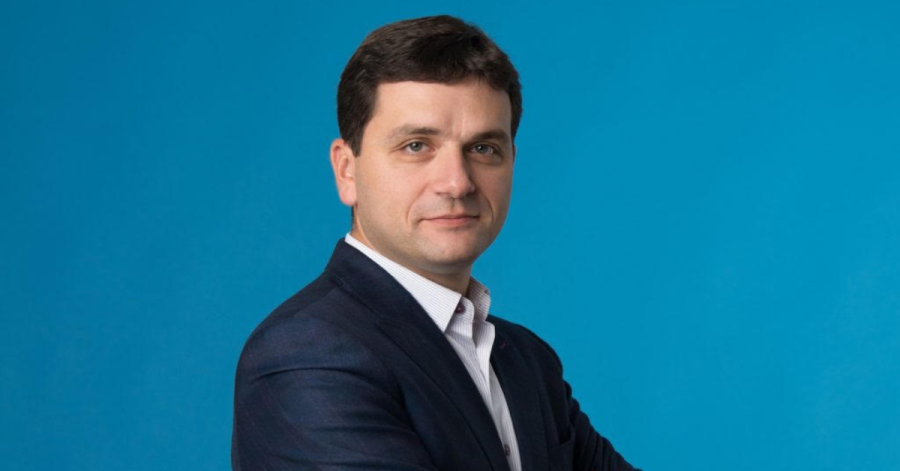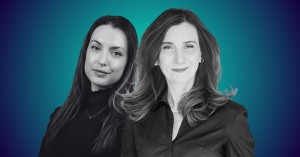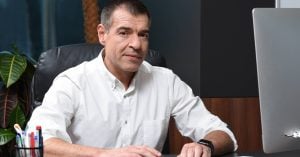As a tech leader, are you dealing with the challenge of building a transparent, healthy, and thriving organizational culture? Today, we’ll explore best practices in building a powerful organization culture in IT together with Alex Lăpușan, co-founder and CEO of Zitec, a leader in the IT and digital marketing industry in Romania, specialized in developing solutions and services for digital transformation.
When Simona and Alex Lăpușan founded Zitec in 2003 in Bucharest, the Romanian IT industry was in its infancy. Among many multinational companies that were setting up development centers in the country, Zitec grew year by year, now counting over 340 people, global partnerships with Microsoft, Google, Adobe, and VTEX, and 240 active clients globally. Over the last three years, the company’s evolution has continued on an upward trend, reporting an average annual business growth rate of 54%, according to the company’s official communications.
In 2022, the company focused on consolidating its two products: Mirro.io, a solution for performance management, recognized as leader in a Absence Management, Performance Management, Core HR și OKR by G2 Winter 2023, and Regista, a solution for the automation and streamlining of the public administration’s activity.
Continue reading to see what are the building blocks of effective leadership for Alex Lapusan, and how Zitec plans to assist companies with their digital transformation plans in 2023.
The Recursive: What does Zitec bring to the market, and what is the core technology behind it?
Alex Lăpușan, Zitec: Simply put, it’s digital transformation. We shape and employ technology so it inspires and empowers people and organizations to achieve their utmost potential.
There are fewer and fewer Romanian companies specialized in software development services, with teams of more than 50-100 specialists that can successfully implement complex projects and efficiently cope with staff fluctuations. What sets us apart is the way we continuously strengthen our capabilities in tackling large projects of increased technical complexity, maintaining our positioning as a strategic IT partner, and offering stability and mature processes to clients. That’s why I believe that at Zitec we have a privileged position when it comes to addressing complex projects.
Moreover, we’re following an end-to-end services approach, from offering Consulting and Audit Services to Software Development, Data Analytics, and Digital Marketing. This proves highly beneficial for our clients in the long run, as it allows us to cover their digital transformation plans and projects in their entirety.
What does a day in your role as the CEO of Zitec look like?
My role has changed dramatically over the years, and I dare say it’s way better than a few years ago. Now we’re a big team with autonomous seniors on the majority of our strategic business lines and support departments.
A typical day for me usually includes participation in strategic meetings, offering support to my coworkers involved in Business Development, and collaborating with the Marketing team on various PR and communications projects.
One of the things that gets me energized is spending time and giving kudos and feedback in Mirro, a performance management platform we developed with the goal of building transparent and thriving workplace cultures. On top of that, I get an instant taste of all my colleague’s daily wins and celebrations that otherwise might get lost and uncelebrated. In 2022 alone, we’ve had 3906 feedback pieces and 1873 kudos given in Mirro.
How do you define leadership and what are the building blocks of creating a strong executive team?
I believe the most important building block of effective leadership lies in the way you manage to create and sustain a strong and healthy organizational culture. Usually, when we think of culture we imagine a list of values, but frankly, we are complex human beings, and individuality and authenticity should be felt rather than listed.
We value and encourage people to explore their passions and hobbies, trust in their peers’ competence and good intentions, and avoid micromanagement. Not surprisingly, we see these traits among the people that choose to join us and end up spending many years with us. Values such as commitment, respect, or performance are intrinsic; we live them fully.
Over the years, we’ve seen people attracted by our employee value proposition focused on talent amplifiers such as training in communication and other soft skills, support in obtaining technical certifications, and constant and on-the-spot feedback. My colleagues seem to value Zitec’s openness in decision-making and communication, as well as the genuine connections they can build here for the long haul. Additionally, psychotherapy at the office and financial education complement our employee package benefits; we have dedicated clinicians for our team members and we regularly organize workshops on the current economic outlook or personal finance management.
What are the main practices and mindsets that have helped you in your role as CEO?
Being a CEO is a constant learning journey. We’re still learning how to do things better as we grow and adapt to this fast-changing digital world. Despite all the change that surrounds us, one rule stands above all: work ethic. Always and forever, no matter what, a strong work ethic never failed us. It’s one of the things that has never changed for the past almost 20 years and has helped us grow this prolific and engaged team we are today.
Another practice that proved effective over the years is always asking ourselves how to be relevant in a fast-paced industry. For this reason, we invest constantly in informed technology management and strategic decision-making on which technology direction to pursue and which one to avoid.
As the leader of a software company, what are the key trends you will follow closely and what can we expect from Zitec in 2023?
The significant business growth we’ve had at Zitec for the past few years is proof that companies continue with their fervent digital transformation plans. Therefore, we’re already working on expanding each of our 13 business lines to offer a complete portfolio of digital transformation solutions, from Custom Software Development, Data Analytics, and Digital Marketing services to local government digitization solutions and projects developed using cutting-edge technologies such as Blockchain, AI, or Machine Learning.
In 2023, we’re counting on an organic growth trend, similar to 2022, but additionally exploring potential acquisitions of IT companies. We’ll continue to support our clients in over 30 countries with expertise in a variety of industries and relevant technologies, expand geographically, and strengthen strategic technology partnerships with global players such as Google, Microsoft, AWS, Adobe, and VTEX.
Last but not least, we plan to see Mirro grow into an independent company, as well as reach a 2 million EUR turnover for Regista, the application we built to help Romanian local authorities reduce paperwork and improve their relationship with citizens.
Tell us about a challenge that you faced. How have you dealt with it?
For the second half of 2022, crypto and distributed ledger technology (DLT) projects experienced a drop in volume, in correlation with the unfavorable evolution of the crypto market, which saw a decrease of 51.2% compared to 2021. Regretfully, many entrepreneurs in this sector no longer had the necessary resources to continue with their projects. Overall, we managed to compensate for this decrease in the number of projects, with a 42% increase in the growth of the company as a whole.
At a team level, 150 new colleagues joining us in 2022 kept us alert throughout onboarding and delivery. However, we managed to have a very good employee loyalty rate (85%) as well as a customer retention rate of 82%, above the IT and software industry average (77%).
What do you think about reshaping capitalism to include social and environmental impact, and how do you contribute to that?
At Zitec we’re involved in numerous social and educational campaigns, such as blood donations, partnerships with our clients and collaborators to improve the education system of Romania, the ANIS scholarships, and many other initiatives.
We create the context for such acts of kindness to happen and they grow from within, with many initiatives being brought forward by our teammates. This is the strategy that we found to be most effective because being kind and caring about the world around you is a lifelong endeavor, not a one-time act. The proof for this is our cei1024.ro blood donation campaign: in December 2022 we’ve counted the 25th edition and over 17.000 saved lives.








